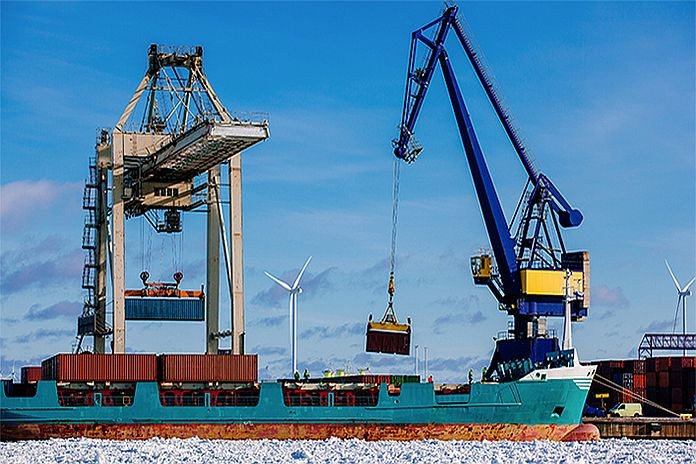GENEVA, Switzerland – Five years since the Trade Facilitation Agreement (TFA) entered into force on 22 February 2017, global trade flows are well-positioned for a COVID-19 recovery on the back of WTO members’ steady progress in implementing the landmark Agreement. Director-General Ngozi Okonjo-Iweala said the TFA has helped support global supply chain resilience and called for further work to help economies withstand future challenges.
The TFA, which contains commitments to expedite the movement, release and clearance of goods, including goods in transit, entered into force five years ago when the WTO obtained the two-thirds acceptance of the Agreement from its 164 members. It also contains provisions to help developing and least-developed countries (LDCs) obtain technical assistance and capacity building to implement the TFA.
“WTO members’ efforts to implement the Trade Facilitation Agreement over the past five years have been vital for global supply chain resilience, which is more than ever important amid the demands for a sustainable recovery from the pandemic. Border reforms to fulfil TFA commitments, such as the streamlining of trade procedures, expedited approvals for perishable goods, and establishment of information portals, have helped ensure that food, vaccines, medical products and other essential supplies continued to reach people despite difficult conditions,” said DG Okonjo-Iweala.
“However, there is more work to be done. Workers, small businesses, and many developing economies are among the hardest hit by the pandemic. The full implementation of the TFA, supported by aid for capacity building from partners, will be necessary to help economies bounce back and better withstand future shocks.”
As of 22 February 2022, notifications submitted by WTO members indicate that they have committed to implement 74.3 percent of TFA obligations at present. The TFA is the first WTO agreement in which developing and LDC members can determine their own implementation schedules and seek to acquire implementation capacity through the provision of related assistance and support. Developed members were required to implement all provisions of the TFA from its entry into force. The implementation rate for each WTO member can be viewed here.
Human resources and training, assistance in amending laws or regulations or implementing new ones, and information and communication technologies are among the most common types of requests for technical assistance and capacity building filed by developing countries and LDCs according to the report from the first-ever review of the TFA, which members concluded last November.
The report includes a list of presentations members made on trade facilitating measures they took to mitigate the COVID-19 crisis. Tonga, for example, utilized Article 7.8 of the TFA to expedite shipments and facilitate the importation of the COVID-19 vaccine while Paraguay and the European Union cited the benefits of establishing digitized processes, encouraged under the TFA, to enable remote work and business continuity during the pandemic. The report is available here.
Members, with the support of the WTO Secretariat, will hold a TFA anniversary event later this year to take stock of implementation progress and discuss further work.





